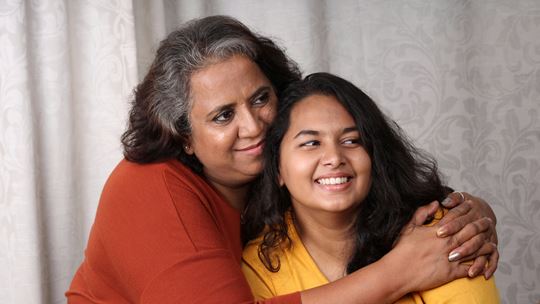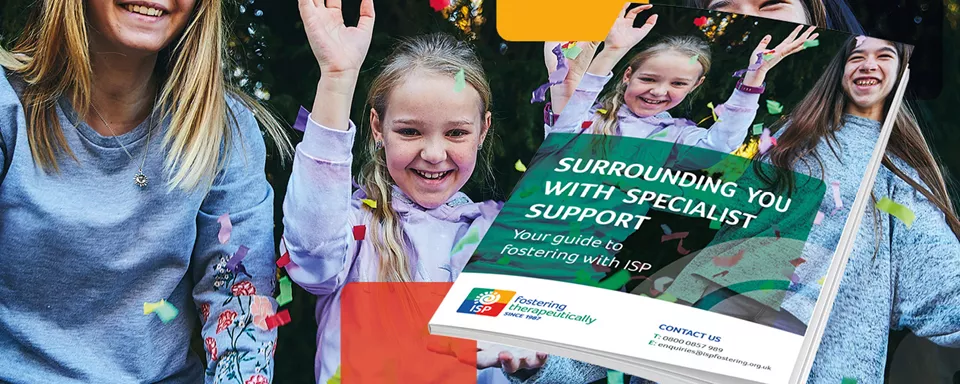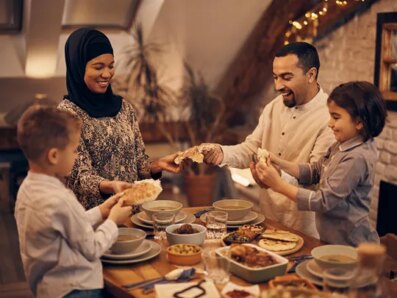64% of children in care are between ages 10 and 18. This means the majority of young people who need a foster home are either approaching adolescence or are already teenagers.
These young people need a safe, stable and nurturing home so they can navigate the changes and challenges that come with being a teenager.
We spoke to some of our current foster parents to discover what it’s like to foster a teenager. Their experience provides a real insight into the challenges and rewards of being part of this pivotal era of young people’s lives.

What is it like to foster a teenager?
If you’re considering fostering a teenager, it’s understandable that you’d want to learn more about what it’s like before making an informed decision. And who better to tell you than those who already foster teenagers?
From 4 months to 28 years of experience, we asked foster parents at different stages of their fostering journey five questions about fostering teenagers, and this is what they said.
What inspired you to foster teenagers?
They’re more independent
Mandee, who has been fostering teenagers for 12 years said, “I find their level of independence fits better into my household. At the time I was unaware of how difficult it was to place teenage children, particularly girls.”
Fostering couple Caroline and Mark said, “Teenagers are often thought to be more difficult than younger people – but this often isn’t the case. Teenagers can also be much more receptive to the help you can offer, and this can be so rewarding.”
Having a positive impact
Beverly started fostering teenagers four months ago because she knew she could “provide a safe, loving, stable and secure home for them” and wanted “to make a positive impact in their lives”. She also said, “It is the perfect opportunity to help them reach their full potential and to make up for any shortfall they might have encountered.”
Caroline said, “I like the positive impact that my family can make on teenagers. I raised challenging teenagers myself and feel that I have learned how to make a difference. My main aim is to not catastrophize what I consider to be regular teenage behaviours!”
Being with them on their journey
Foster parent Sharon explained, “It’s an exciting time in their growth journey. They are becoming more independent, and we can do more adventurous activities together that you cannot do with younger children. Teens are much more open to negotiation, and you are often able to reason with them more. Their development as they start life skills, cooking, managing money, and thinking about their futures means that I also feel valued by them but in a different way.”
What’s rewarding about fostering teenagers?
It’s the little things
Sometimes, the most rewarding aspects of fostering teenagers are the small moments. Pauline and Ian shared, “It’s when you hear them singing, laughing and adapting to new and varied situations. Although these examples come with challenges, once they trust us, we can usually steer them into feeling safe and held.”
The possibilities
Richard and Faith said, “There’s so much to work with when fostering teenagers, so much fun and lots of possibilities as we guide them through all the opportunities that teenage life offers. Seeing them transition from their early teenage years into further education and now, for us, into a Staying Put agreement. We love their growing independence and creating freedom for them to flourish and explore the world around them whilst knowing they have a safe and secure home behind them.”
Helping them grow
Sharon explained that the most rewarding thing about fostering for her is “Being able to negotiate with them. Seeing them grow from childhood to becoming an adult. Catching them when they fall. Seeing their hopes for the future develop.”
Becoming family
For Le-van, it’s “When they become part of the family, visiting us regularly after they’ve moved out” and “when they write you a letter or card saying how you’ve changed their lives”.
Mark, who has been fostering for 17 years, said, “We are never too old to be given another chance, and it remains a pleasure to support these vulnerable young people into adulthood.”
What are your biggest challenges?
Building trust
Providing therapeutic foster care to teenagers who’ve had a difficult start to life is rewarding but also comes with challenges. In Le-van’s experience, the first year can be the most challenging. She said, “They feel rejected and that no one wants them,” and it takes time to “build trust with them as they go through a traumatic experience of living with strangers.”
Foster parent of ten years, Chris, said, “Our biggest challenges are convincing teenagers that not everyone is against them, and we are here for them, not for anyone else. We have adapted techniques over the years to do this that work well in most cases.”
Regulating emotions
Beverly is currently fostering a teenager who, she said, “Has difficulties in expressing her emotions and thoughts, which I think is due to past trauma. I have to think of different strategies to better understand what her needs are and how to communicate effectively with her.”
Forming relationships
Mandee said, “Changing behaviours and patterns is probably the most challenging. Engrained behaviours are the hardest. My first child had found it difficult to build relationships as she had been in care from a young age. A lot of her behaviours reflected her past. She wanted to be loved but couldn’t really accept the love at that time. It has taken many years, and she tested me to my limits, but she can now.”
Setting boundaries
Mike said, “Setting realistic boundaries and expectations is a challenge, but we need to be flexible and realistic in our expectations as carers.” Sharon said, “Internet and social media safety and getting them to come home on time” are the boundary challenges she has experienced.
Saying goodbye
Paula, who has been fostering for seven years, said, “My biggest challenge was saying goodbye to a child who had been with me for five and a half years. It was a grieving process, so I took time off and was supported with this.”
Have you experienced any breakthrough moments?
When they’re able to be themselves
Breakthrough moments, no matter the size, demonstrate the impact you are having on a teenager’s life. For Richard and Faith, the small moments have been the most significant. They said, “Breakthroughs in our experience tend to be small yet significant. For example, a young lad chose to call us mum and dad without our prompting and still does. The same child began trusting that he could lose his temper and be angry without the fear of losing our love and affection.”
When their faces light up
Paula, who has experienced “thousands” of breakthrough moments, said, “When they first smile seeing you and their faces light up because you have turned up to a school event. When they do something for the first time, and when you see their confidence start to grow. When they open up about things that worry them or when they tell you, ‘This is the best day ever.’ It’s a very long list.”
Day-to-day moments
Chris said, “We have had lots of breakthrough moments. Sometimes, it’s just the small things that matter, like getting children into a routine, helping them learn how to look after themselves better and giving them opportunities to do new things and be themselves. We have experienced all of these things in our years fostering.”
When they start trusting you
Fostering couple Caroline and Mark said, “All young people are unique and take different amounts of time to trust you. One child took a few years, often appearing very quiet and unresponsive. Then suddenly, they started trusting us and confiding in us about their worries. We were then able to get them the help they needed – they aren’t quiet now, and it’s lovely to see.”
How has ISP supported you?
Reliable support
Mandee has been able to rely on our support for foster parents. She said, “I have been very lucky to have amazing people around me at my most challenging times. One child, in particular, was so high level that my social worker checked in with me daily. I could not have got through it without her support.”
Like-minded foster parents
Sharon said, “My fostering advisor is very supportive and is usually able to think of something to help if I am stuck. There are many like-minded carers within ISP, all with a wealth of experience that they are willing to share to support you. The range of training ensures you are always able to develop your practice and refresh.”
ISP is a family
Richard and Faith said, “Excellent training programme. They also provided much-needed support this summer to help us with our two children with SEND’s. We appreciate being in a bigger group of carers who become good friends. Social events which promote the sense of being family within ISP.”
ISP is there for us 24/7
Chris said, “ISP is always at the end of the phone to help resolve any issues and provide advice. They always seem to have our best interests at heart.”
Tips for fostering teenagers
We asked our foster parents – What advice would you give someone considering fostering teenagers? Here are their responses:
1) Be realistic and flexible
Mike said, “Be realistic in your expectations, flexible in your parenting and open and honest. Remain mindful that these older children have most likely missed out on so much during their early years and find agreeable ways with them to fill these voids.”
2) You need to be resilient
Le-van said, ‘It will be hard at times and challenging, but it’s the most rewarding thing, especially when they become part of your own family. Be resilient and try your hardest not to give up on them. They need us more than they think.”
3) You need a sense of humour
Paula said, “You will need to have a sense of humour and really listen to them. Praise them; they would have received minimal praise. Reinforce their achievements and offer to organise a hobby. Never criticise their parents and welcome their friends even though they often have challenges too. Be open, friendly, positive, curious and very understanding.”
What are you waiting for?
Caroline and Mark said, “If you have the availability, space, time, commitment and patience – what are you waiting for? There are no greater rewards than helping people through a difficult time and seeing them become the best they can be – especially vulnerable young people.”
If our current foster parents have inspired you to become a foster parent, and you’d like to learn more about fostering teenagers or the therapeutic pathway training we provide here at ISP, please get in touch.







